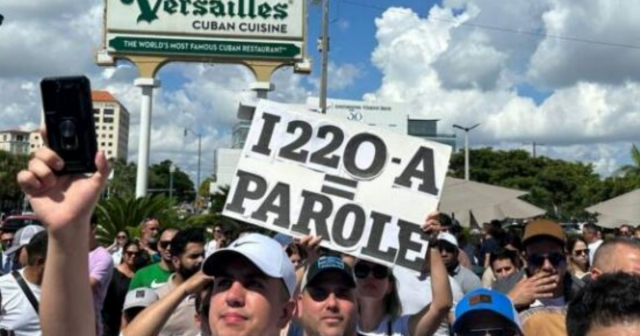A Cuban-American who had not seen her brother living on the island for 54 years received him and other members of her family at the Miami airport in a special way:with a bunch of bananas.
The lady, called Ondina and a native of Baracoa, in the province of Guantánamo, explained instatements to journalist Mario J. Pentón the reason for the singular occurrence.
“I hadn't seen my brother in 54 years and I wanted to greet him with a memory of our childhood, because we would go into my father's fields and start cutting bananas and bananas.”, explained the lady.
“That was so that he would have a memory of what we experienced, and I am very happy and very grateful that the humanitarian parole has reached my brother," she added.
Questioned by one of her relatives about what they would do with those bananas, the grandmother answered happily:"Oh, make a fufu!"
The images of the moment of the reception at the Miami airport showed about twenty happy people, with balloons and a banner that said:“Ondina's troop.”
So far, more than 8,000 Internet users have reacted to the emotional images and almost 900 have left comments, many of them praising the beautiful way that the lady found to connect with her family member despite more than half a century of separation:a shared childhood memory.
It is not the first singular welcome in recent weeks at Miami Airport.
In January, a video went viral on social networks in which Cuban Rigoberto Castillo DíazHe received his 21-year-old nephew with a pickaxe, a shovel and a pair of boots, this as a clear message about the need to quickly adapt to work in the United States as the only way to get ahead.
In later statements, Castillo Díaz admitted that his idea was a bit exaggerated, but argued thatIt was the way he found to send a message that he considers valid for all immigrants, but especially for Cubans.
“It has to be done because he is a man who comes from a fractured society, a society broken from every angle you look at it. I am of the opinion of saying that it is better to build men than to have tomorrow than to repair broken men,” Rigoberto concluded.
What do you think?
SEE COMMENTS (2)Filed in:
